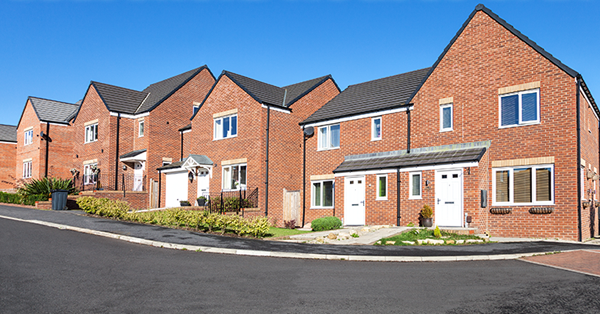How to Find a Surveyor When Buying a House in 2025
- Get multiple quotes from different local surveyors, giving you an idea of the costs.
- Top Tip: Check online reviews for surveyors and ask for recommendations from friends or family who have recently bought a property.
- A surveyor with local expertise can be invaluable in the assessment of a property’s condition and value.
- If you're buying a new-build property, you should consider a snagging survey rather than a homebuyer's survey.
Buying a house is one of the biggest decisions you'll ever make. One essential step in this process is getting a survey done by a chartered surveyor once you have had an offer accepted. This guide will help you understand the importance of a survey, how to find a surveyor, and what to look for when choosing one.
What is a homebuyer’s survey?
A homebuyer's survey is an inspection of a property's condition conducted by a qualified local surveyor. This inspection aims to uncover any issues that might not be immediately visible to the untrained eye. The surveyor will look for signs of structural problems, damp, roof issues, and other defects that could affect the property’s value or require costly repairs in the future.
Who organises a survey when buying a house?
Typically, the buyer is responsible for organising the survey when purchasing a house. Once you've made an offer subject to survey and it's been accepted, book it in without delay.
In the UK, there are various levels of Home Surveys to suit different types of properties and buyer needs. For example, a basic condition report provides an overview of the property’s condition, while a more detailed homebuyer report includes specific advice on defects and potential repairs. For older or more complex properties, a building survey (sometimes called a full structural survey) offers specialist advice and a comprehensive analysis of the building's structure and condition.
Having a homebuyer’s survey can save you from unexpected expenses and stress. It provides a clearer picture of what you’re buying and can be a useful tool in negotiating the purchase price. If the survey reveals significant issues, you might decide to renegotiate or even reconsider the purchase altogether.
In our recent survey, 16% of homeowners found defects; including 2% who were able to pull out of a bad purchase, 7% who were able to negotiate a better price, and sadly, 7% of homeowners who did not get a survey and discovered defects after the purchase.
12 of the 39 who remembered how much these defects cost to remedy spent over £5,000
Don't burn your money, book a survey.

Why do I need a surveyor?
Hiring a surveyor is a crucial step in the home-buying process because it provides expert advice on the property’s condition. Without a survey, you might miss out on important details that could affect your decision to buy. A surveyor’s report can reveal structural problems, potential repair costs, and maintenance issues that aren’t visible during a standard viewing.
One of the main reasons to get a survey is to ensure that you’re paying a fair price for the property. If the survey uncovers significant defects, you can use this information to negotiate a lower purchase price or ask the seller to fix the issues before the sale is completed. This can save you thousands of pounds and prevent future headaches.
Additionally, a house survey can provide peace of mind. Knowing the exact condition of your potential new home can help you plan for future repairs and maintenance. It also reduces the risk of unforeseen problems arising after you move in, ensuring that your investment is sound, and your new home is safe and habitable.
Looking for a cheap building surveyor? Check out our article to find out the risks.

How to find a surveyor when buying a house
Finding the right surveyor involves a few important steps to ensure you get a reliable and thorough service.
Get multiple quotes
Firstly, it's wise to get multiple quotes from different RICS chartered surveyors. This will give you an idea of the costs involved and help you compare the services offered. Be cautious of quotes that seem too good to be true, as they might not include a comprehensive survey.
Choose an accredited surveyor
Next, check the accreditation of any surveyor you’re considering. In the UK, the Royal Institution of Chartered Surveyors (RICS) is the main professional body and regulates chartered surveyors. A RICS-accredited surveyor adheres to strict standards and is more likely to provide a thorough and professional service. Our hand-selected panel at SAM are RICS accredited and carefully chosen with the best client experience in mind.
Research verified reviews
Doing your own research is also crucial. Look at online reviews and ask for recommendations from friends or family who have recently bought a property. They will be able to provide contact details for the chartered surveyor, and it might give you some peace of mind. Online reviews can provide insight into the surveyor’s reliability, thoroughness, and customer service.
Remember, you’re not obligated to use the local surveyor recommended by your estate agent. Sometimes, agents have partnerships with specific surveyors, which might not always be in your best interest.
Ready to book your home survey?
Our survey specialists will advise you on the correct survey to get for your property, with a panel of RICS-accredited surveyors on hand to cover the whole of England and Wales. Level 2 and 3 home surveys start from £375 EXC VAT.
What to consider when choosing a surveyor
The surveyor's local knowledge
A RICS surveyor familiar with the local area will have a better understanding of common issues with local properties and the property market. This local expertise can be invaluable in providing an accurate assessment of the property’s condition and value.
Experience
A chartered surveyor with extensive experience, especially with the type of property you’re buying, is likely to provide a more thorough and reliable survey. Ask potential surveyors about their experience and whether they’ve inspected similar properties in the past. Their ability to identify subtle issues often comes with years of experience.
Reviews and testimonials from previous clients
These can provide insight into the surveyor’s reputation. Look for feedback on their professionalism, thoroughness, and the clarity of their reports. Positive reviews from other homebuyers can give you confidence in their service. However, consistent negative feedback should raise red flags.
The time frame for completing the survey
Buying a house can be a time-sensitive process, and delays in getting the property survey report can hold up the entire transaction. Ask the surveyor how soon they can perform the survey and how quickly they can deliver the report. Also, inquire about the level of detail in their reports and ask to see a sample report to ensure it meets your needs.

Types of surveys from chartered surveyors
There are several types of home surveys available, each suited to different needs and budgets:
Valuation Survey
Valuation surveys, also referred to as mortgage valuations, are typically organised by a mortgage lender to make sure the property is worth the money that they are lending. This type of house survey is required if you sell or remortgage a shared ownership property.
RICS Level 2 Survey (Homebuyer Report)
This mid-range house survey is suitable for a conventional property that is in reasonable condition. It includes an inspection of the inside and outside of the property, highlighting any major issues that might affect its value. It also provides advice on necessary repairs and ongoing maintenance. However, it does not delve into the fabric of the building as deeply as more comprehensive surveys.
RICS Level 3 Survey (Building Survey)
This is the most detailed type of survey and is ideal for older, larger, or unusually constructed properties. It provides a thorough inspection of all accessible parts of the property, offering a more detailed breakdown and advice on defects, repairs, and maintenance. This survey is particularly useful if you plan to undertake significant renovations or if the property is in poor condition.
Building Survey
Often considered synonymous with the RICS Level 3 Survey, this in-depth analysis covers all structural aspects of the property. It includes detailed information about major and minor defects, potential risks, and estimated repair costs. This survey is suitable for any property type but is especially recommended for those with significant concerns about the property's condition.
Snagging Survey
This type of survey is designed for new-build homes. It identifies any minor defects, unfinished work, or issues that the builder needs to address before you move in. A snagging report ensures that your new home meets all quality standards and is ready for occupancy.

If you’re purchasing a new-build property survey
If you're buying a new-build property, a traditional homebuyer survey might not be necessary. Instead, you should consider a snagging survey. Unlike older properties, new builds typically don’t have significant structural issues. However, they can still have a range of minor defects or unfinished work that needs addressing before you move in.
This survey focuses on identifying these issues, ensuring that everything from the plumbing to the paintwork meets the required standards. It is conducted before you complete the purchase, giving the developer time to fix any problems and will be an essential step to ensure your new home is perfect from the day you move in.
Call or send us a message to request a callback or an email answering your queries about our surveys.
Our UK-based survey team can help you choose the right level of home survey for your property, at no extra charge.
There's no obligation to instruct. We'll make sure you understand your options and provide a free, fixed-fee quote for our best-value survey to meet your needs.
No robots, no call centres. Property challenges solved.
Jack is our resident Content Writer with a wealth of experience in Marketing, Content, and Film. If you need anything written or proof-read at a rapid speed and high quality, he's your guy.
Caragh is an excellent writer and copy editor of books, news articles and editorials. She has written extensively for SAM for a variety of conveyancing, survey, property law and mortgage-related articles.










